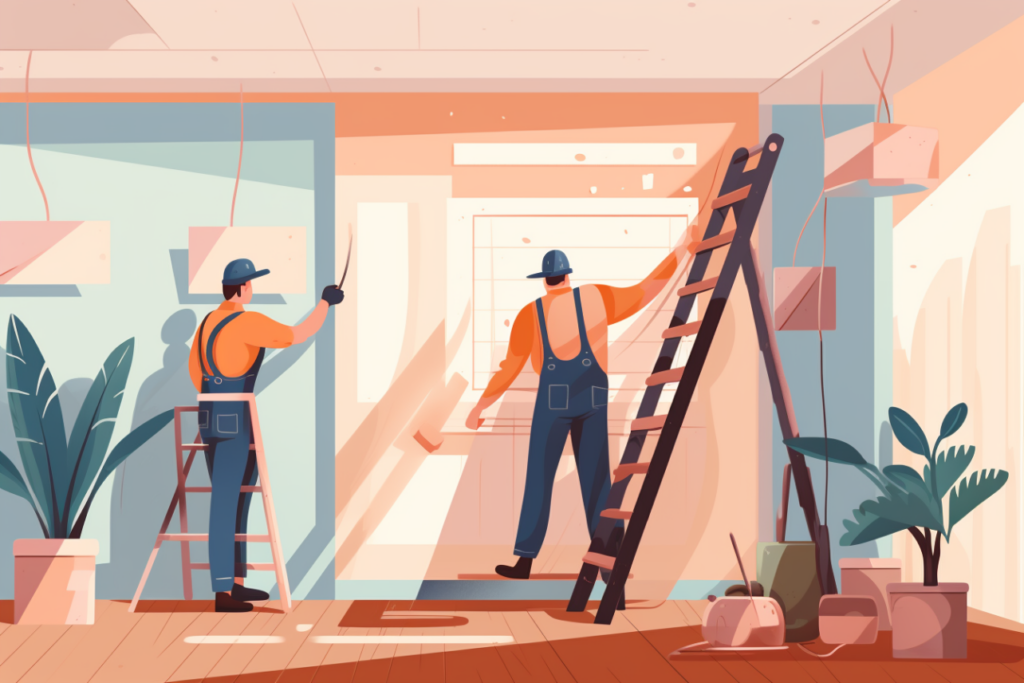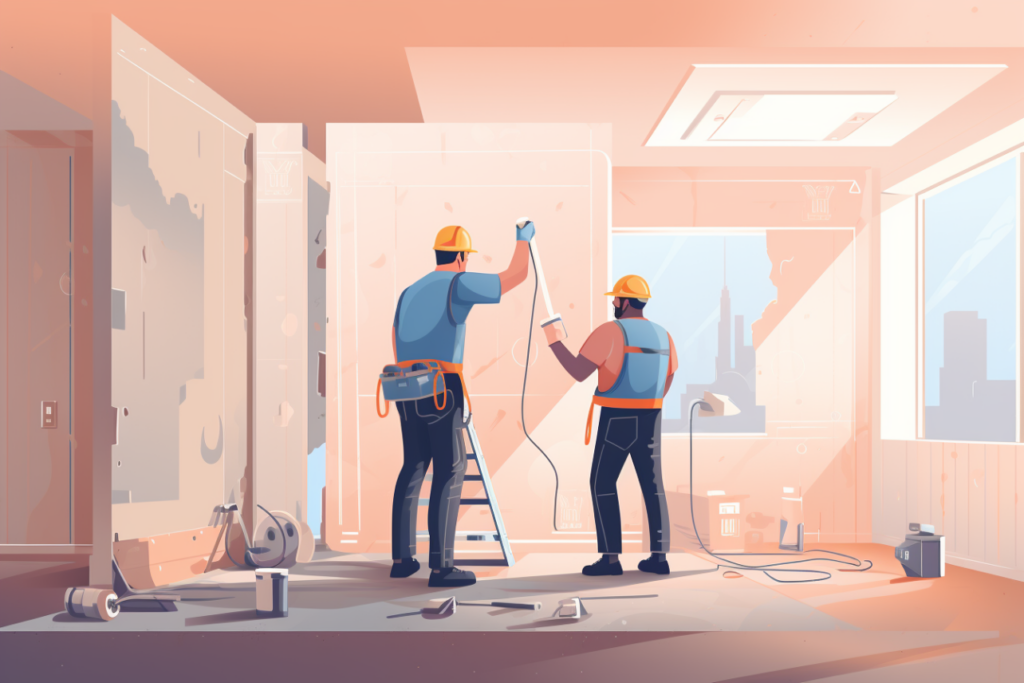When it comes to creating a comfortable and energy-efficient living space, one concept that plays a vital role is home insulation. While it may not be the most glamorous topic, understanding and implementing proper insulation techniques can significantly impact the overall comfort and energy efficiency of your home. We will delve into the world of home insulation, explaining what it means, the importance of insulation, different types of insulation, and how it can benefit you in the long run.
What Is Insulation?
To put it simply, home insulation refers to the process of adding a thermal barrier to different parts of your home to prevent heat transfer. The ultimate goal is to create a thermal envelope within your home where the interior temperature remains stable regardless of the exterior weather conditions. A well-insulated home can keep you warm in the winter and cool in the summer, ensuring optimal comfort all year round.
The importance of insulation cannot be overstated. Proper insulation helps to minimize heat loss or gain, ultimately reducing the energy required to heat or cool your home. This translates into lower energy bills and contributes to a more environmentally friendly lifestyle by reducing the carbon footprint associated with excessive energy consumption.
Additionally, effective insulation can prevent drafts, reduce noise transmission between rooms, and improve indoor air quality by creating a barrier against outdoor pollutants.
Various types of insulation materials and techniques are available, allowing homeowners to choose the option that best suits their needs and budgets. Below are some common types of insulation:
Fiberglass Insulation
This is one of the most popular and cost-effective options available. Fiberglass insulation is composed of thin, glass-like fibers designed to trap air and slow heat transfer. It is available in batts or rolls and can be easily installed in attics, walls, and floors.
Pros
- Affordable
- Easy to install
- Non-flammable
- Soundproofing
Cons
- Skin irritant
- Pest issues
- Environmental concerns (not biodegradable)
- Settling over time
Cellulose Insulation
Made from recycled paper or plant fibers, cellulose insulation is an option that provides excellent thermal and sound insulation and is eco-friendly. It can be blown into wall cavities or attic spaces and is particularly effective in reducing air leaks and preventing the passage of noise.
Pros
- Eco-friendly
- Fire resistant
- Air sealing
- Cost-effective
- Energy efficient
Cons
- Moisture absorption
- Chemical treatment
- High cost
- Lost of dust when installing
- Heavy material
Spray Foam Insulation
This insulation is applied as a liquid and expands to create a solid foam layer. Spray foam insulation effectively seals gaps and cracks, providing exceptional thermal performance. It is commonly used in attics, basements, and crawl spaces.
Pros
- Strong structural integrity
- Pest deterrent
- Versatile
- Air sealing
- High R-value
Cons
- High cost
- Chemical components
- Professional installation needed
- Irreversible
- Longer curing time
Reflective Insulation
Reflective insulation is often seen used in hot climates and relies on its ability to reflect radiant heat. It consists of sheets or panels with an outer surface that reflects heat away from the home. Reflective insulation helps keep the interior cool by minimizing heat absorption from the sun.
Pros
- Lightweight
- Energy efficient in hot climates
- Easy to install
- Low maintenance
- Space-saving
Cons
- Limited capabilities
- High cost
- Climate-specific (not ideal for cold climates)
- Professional installation recommended
Advantages of Home Insulation

You may be wondering how proper insulation can benefit you in the long run. Well, the advantages extend far beyond just saving on energy bills. Firstly, a well-insulated home ensures consistent temperatures throughout, eliminating cold spots or hot zones that can be uncomfortable. This is particularly important for rooms located in basements or attics that are naturally more susceptible to extreme temperatures.
Secondly, effective insulation is a barrier against external noise, making your living space more peaceful and quiet. Whether you live in a crowded urban area or near a noisy highway, insulation can help maintain tranquility indoors, allowing you to enjoy a peaceful and undisturbed atmosphere.
Furthermore, investing in proper insulation can enhance the resale value of your home. Homebuyers are increasingly attracted to energy-efficient properties that offer long-term savings on utility bills. By having a properly insulated house, you ensure your comfort and make your property more appealing to potential buyers should you decide to sell in the future.
Drawbacks to Insulation
However, like any home improvement project, there are both pros and cons to consider before moving forward with insulation.
One of the biggest drawbacks to home insulation is the upfront cost. The upfront cost of installing insulation can be high, depending on the type of insulation and the area to be covered. While long-term energy savings usually offset this, it can be a barrier for some homeowners. Depending on the type of insulation you are installing, it can range from less than 20 cents a square foot to over 5 dollars per square foot.
Another potential disadvantage to insulation is that there could be some health risks. Older insulation types, such as asbestos, pose significant health risks. Even modern fiberglass insulation can irritate the skin and respiratory system if incorrectly handled.
Finally, if your insulation is not installed properly, it can be ineffective. For example, gaps in the insulation or compression of material can significantly reduce its ability to retain heat or cold. It could also attract pests and require further maintenance down the road.
No matter what type of insulation you choose, it is important to consult a specialist to avoid any installation issues.
Home insulation is a crucial component of a comfortable and energy-efficient living environment. By understanding the concept and implementing the right insulation techniques, you can significantly reduce energy consumption, lower utility bills, improve indoor air quality, create a peaceful atmosphere, and increase the value of your home. So, don’t overlook the importance of insulation – it’s an investment that pays for itself in more ways than one!
You might also be interested in: What Is Roof Sealant And The Top 4 Benefits It Provides




